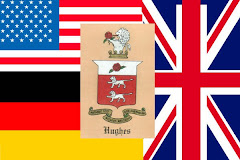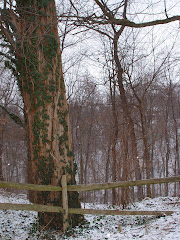What hopes and fears and ambitions come to minds when we think of the little country school house in which we received our early education.
How much we owe to the country school and how little some of us appreciate it. While sailing on the sea of life how many times we are aided by the lessons learned in the country school. How little we dreamed while learning our lessons they would be of so much value to us while fighting our battles. While in school we had many hard trials and thought we had the worst teachers to contend with, but if we could only know what our forefathers and mothers had to endure.
Just look at the contrast: a little log cabin with slabs for seats and no backs, a leaf fastened to the wall that could be raised when anyone wanted to write. Usually a cross ill tempered man for instructor, who tried to beat reading, writing, spelling and a little bit of arithmetic into their brains with a rod. In olden times the teacher who could whip the most was considered the best teacher.
Their sessions were usually three months. As the population and the wealth of the country has increased, the educational advantages have increased until today some very good work is being done in our country schools.
The country school work is the foundation for higher education. What a man becomes depends upon how he builds this foundation and upon what kind of ground he builds it. If he has a good foundation he need have no fear while building the remainder of his temple of education, however grand he should chose to build it. What we make of ourselves depends upon how hard we study and try and not upon the school we attend. And we can study in the country schools as well as the city.
Our life's struggle does not depend altogether either upon what we learn in the schoolhouse. Some of our best lessons are learned on the playground. The playground is a little world.
We must learn to take the "knocks and bumps" with a good face, and learn to take care of ourselves. What a fine opportunity to study character. How much one's disposition is displayed on the playground. We learn to deal with our companions and that helps us to deal with our fellow-men.
One should feel proud that they have had the advantage of a course in the country school. We may not have had the same advantage along the line of study as we would get in the city school, but we are thrown with people in a different way, and to learn how to deal with people is one of life's greatest lessons.
The men who have been the most prominent in the United States received their education in the country school. Some of the strongest men never received any higher education.
Who has done more service for their country than Abraham Lincoln? Who would now work like he did to get education? If there were more boys who would shave up their father's wooden shovel* to work sums on we would not need to have a compulsory school law.
When we think of Benj. Franklin's hard struggle and what came of it, we should have a deep feeling of shame that we have done so little when our advantages are so great.
Ben King represents the average boy of today in his few verses called "Jane Jones:"
"Jane Jones keeps talkin' to me all the time
An' says you must make it a rule
To study your lessons, an' work hard and learn
An never be absent from school
Rememer the story of Elihu Buritt
An how he clum' up to the top
Got all the knowledge 'at he ever had
Down at the back smithing shop,
Jane Jones says it is so,
Meeby he did--I dunno!
O' course whats a keepin' me 'way from the top
Is not never havin' no black smithing shop."
"She said that Ben Franklin was awfully poor
But full if ambition an' brains;
An' studied philosophy all his hull life
An' see what he got for his pains.
He brought electricity out of the sky
With a kite, an' a bottle an' key
An' we're owing him mor'in anyone else
For all the bright lights 'at we see
Jane Jones, she honestly says it is so
Mebby he did,--I donno!
O' course what 's allers been hinderin' me
Is not havin' any kite, lightening er sky."
"Jane Jones said Abe Lincoln had no books at all
An' used to split rails as a boy,
An' General Grant was a tanner by trade
An' lived way out in Illinois.
So when the great war in the south broke first broke out
He stood on the side o' the right,
An' when Lincoln called him to take charge o' things
He won nearly every blamed fight.
Jane Jones, she honestly says it is so
Mebby he did,--I donno!
Still I aint to blame, not by a big sight
For I aint never had any battles to fight."
She said 'at Columbus was out at the knees
When he first thought up his big scheme
An' told all the Spaniards an' Italians, too
An' all of 'em said 'twas a dream,
But Queen Isabella jest listened to him
'Nd pawned all her jewels o' worth,
'Nd bought him Santa Maria, 'and said
'Go hunt up the rest o' the earth."
Jane Jones, she honestly says it is so
Mebby he did,--I donno!
O' course that maybe, but then you must allow,
There aint no land to discover jest now.
Our country school has advanced in the last few years until one can leave it and enter the preparatory school for college.
As the new studies are added it requires a better knowledge to teach them than the ordinary country teacher has.
To become a good teacher requires preparation as well as to become a good lawyer, minister, engineer or president of the United States requires preparation.
The trustees of schools do not like to hire a teacher who has not but attended country school, unless they have a great deal of experience, so the teacher that takes the school first is the one with the most experience or educational advantages. But with the wages even the best teacher receives for five months teaching how long could he attend any college or training school?
We might become good teachers from experience of several years but look what the schools must suffer while one is getting his experience, and by the time one has enough experience to become a good teacher they are old enough to drop from the profession.
If we could get the necessary training before we commence we would spare the schools and ourselves much unnecessary trouble. But we can not do this very well unless we know we will get enough salary to pay our expenses while doing so. The deficiency of teachers this year is because of low wages. The teachers can make more money at other work.
It is hoped that teachers wages will increase parallel with other advancements.
The addition of General History, State History, Civil Government, Book-keeping and Fryes Geography has undoubtedly raised the standard of the country school and if wages will permit the teachers to keep pace, it may not be but a few years until Algebra, Geometry, Latin and Literature will find their place on the list of studies. Then the country school will be on par with the town school and it will be a great thing accomplished.
May the good work go on!
Lida Edna Van Gilder
UNDERLINED NOTE: Shave up their father's shovel
* "Part of his evening he (Abraham Lincoln) would spend in writing and ciphering. His father, Thomas Lincoln was very poor and could seldom afford to buy paper and pens. So Abe had to get on without them. He would take the back of the broad wooden shovel to write on and a piece of charcoal for a pencil. When he covered the shovel with words or sums of arithmetic, he would shave the shovel off clean and begin over again.
When his father complained that the shovel was getting thin, Abe would go out to the woods, cut down a tree, and make another one."
I WOULD LOVE TO HEAR FROM YOU. All comments are welcome; however, if they are inappropriate, they will not be published.
PLEASE post your e-mail in the comment section if you would like to network about a particular surname or topic. I will capture it for my use only and not include it when I publish your comment.
© 2025, copyright Linda Hughes Hiser




























.jpg)


.jpg)




















